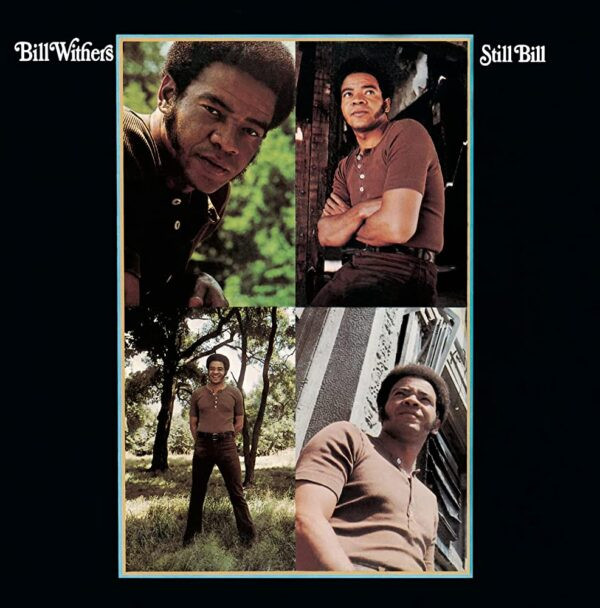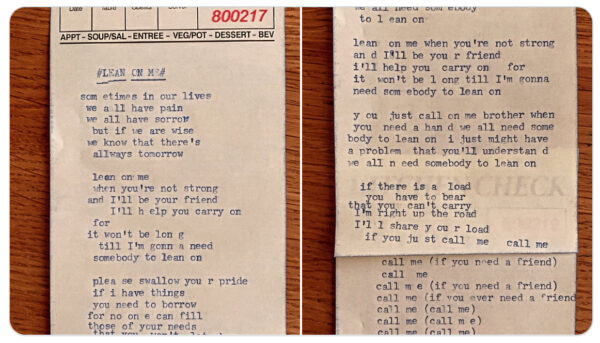Ethan Hein’s reflection on his songwriting course finale highlighted a spontaneous singalong of Bill Withers’ “Lean on Me“. This moment sparked a deeper appreciation for what many consider a quintessential American song. Hein himself posits, “I consider it to be the best American song recorded in the past hundred or so years,” even suggesting it as a superior national anthem to the current one. This bold claim underscores the profound impact and simple beauty of “Lean on Me,” a song that truly embodies the spirit of community and support.
The Spontaneous Singalong and a Bold Claim
Hein’s assertion isn’t just hyperbole; it’s a testament to the song’s enduring power to connect and uplift. He argues persuasively for its anthemic qualities, emphasizing its universal message over the arguably more complex and less relatable themes of “The Star-Spangled Banner.” The spontaneous singalong in his class further illustrates the inherent accessibility and emotional resonance of “Lean on Me.” It’s a song that naturally invites participation, fostering a sense of unity and shared experience.
Bill Withers himself, in a 1974 BBC performance, showcases the raw emotion and sincerity that defines the song. This performance, years after its initial release, demonstrates its timeless quality and Withers’ genuine connection to the lyrics.

From Wurlitzer to World Stage: Unpacking the Songwriting Simplicity of “Lean on Me”
The genesis of “Lean on Me,” as Withers recounted in an interview with SongFacts.com, is remarkably humble. Owning a new Wurlitzer electric piano, he was simply “running my fingers up and down the piano” when the phrase and melody emerged. This simple, almost childlike approach to music creation is key to the song’s broad appeal. Withers himself noted that it’s often the first song children learn to play due to its straightforward chord progression. The phrase “Lean On Me” arose organically from this musical exploration, becoming the emotional core of the song.
This simplicity is not accidental; it’s a deliberate artistic choice. Withers, by his own admission, was a “snob” about lyrics, prioritizing clarity and understandability. He believed in the power of conveying complex emotions and ideas in the most accessible way possible. This dedication to simplicity is what makes “Lean on Me” so memorable and singable.
Rooted in West Virginia, Reaching the World: The Universal Message of “Lean on Me”
Withers attributed the song’s thematic origins to his upbringing in West Virginia, describing it as “a place where people were a little more attentive to each other, less afraid.” He contrasted this with the perceived detachment he observed in larger cities. This rural sensibility, emphasizing mutual support and community reliance, is woven into the fabric of “Lean on Me.” He shared an anecdote about receiving help after a car trouble in Alabama, reinforcing the real-world relevance of the song’s message.
“Lean on Me” transcends geographical boundaries because its message is inherently human. It speaks to the universal need for support, connection, and the comfort of knowing you’re not alone. This is why the song resonates across cultures and generations, becoming a global anthem of solidarity.
The “X-Factor” and Enduring Legacy
In his insightful interview, Withers touched upon the elusive “X-factor” in songwriting – that intangible gift that separates a good song from a truly great one. He acknowledged that while craft and intention are important, there’s an element of creativity that is simply bestowed. This humility and recognition of a force beyond conscious control adds another layer to the appreciation of “Lean on Me.”
The enduring legacy of “Lean on Me” lies in its “re-accessibility,” as Withers termed it. Its simplicity makes it easy to recall, to sing, and to share. It’s a song that lives in collective memory, readily available to offer comfort and hope. Initially, Withers joked, people didn’t pay attention, but now everyone seeks to understand its magic. This journey from relative obscurity to global recognition underscores the timeless power of a truly great, and seemingly simple, song.
“Related reading: “Heading out for Wonderful””


